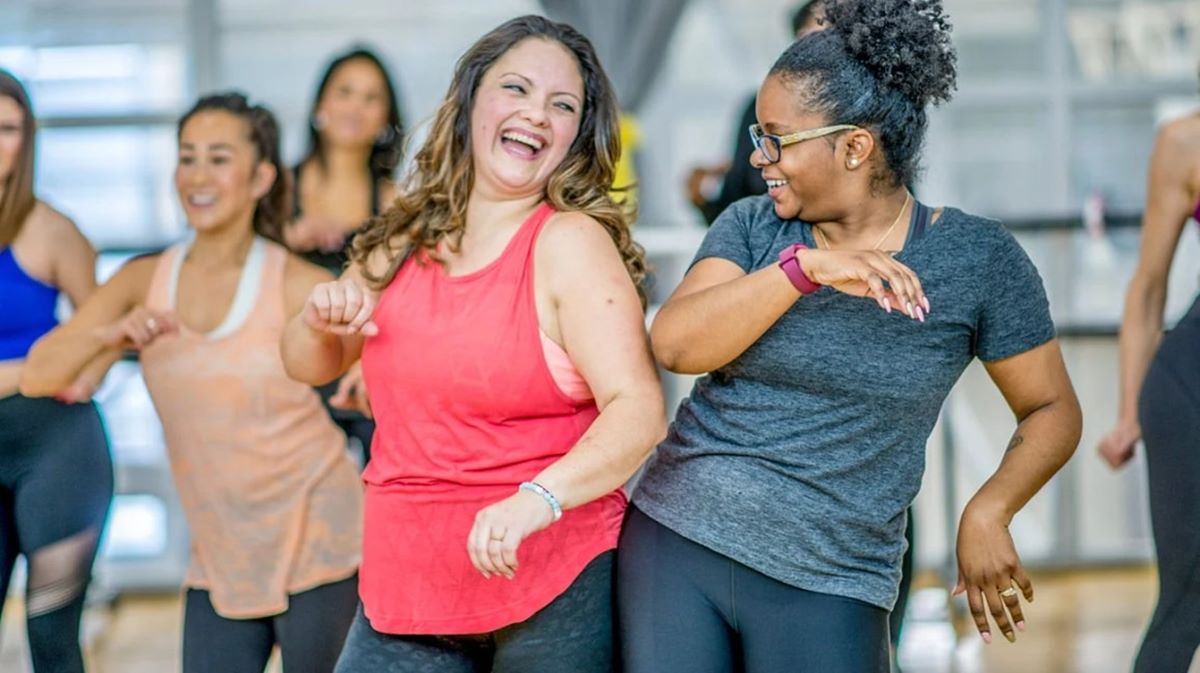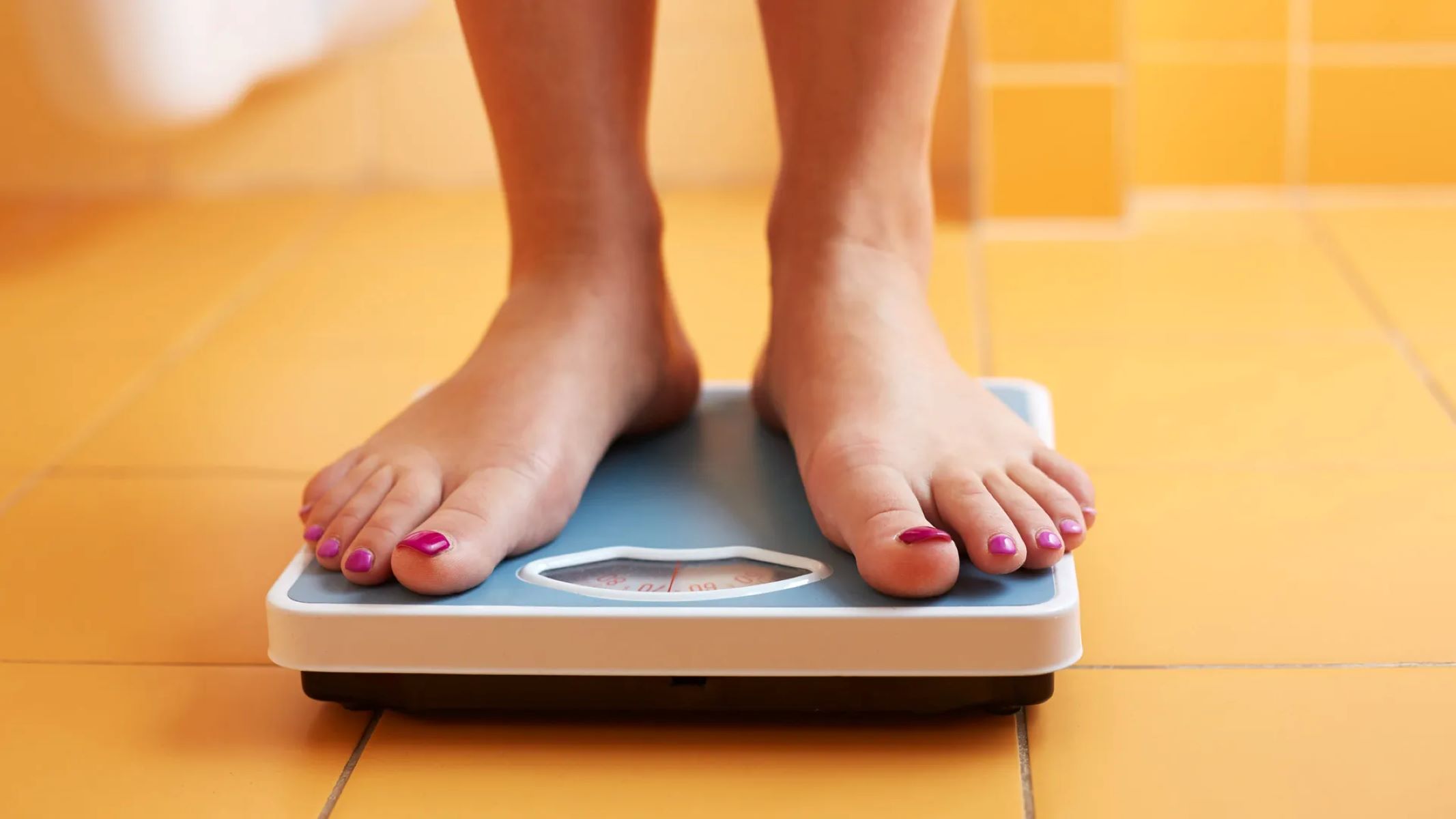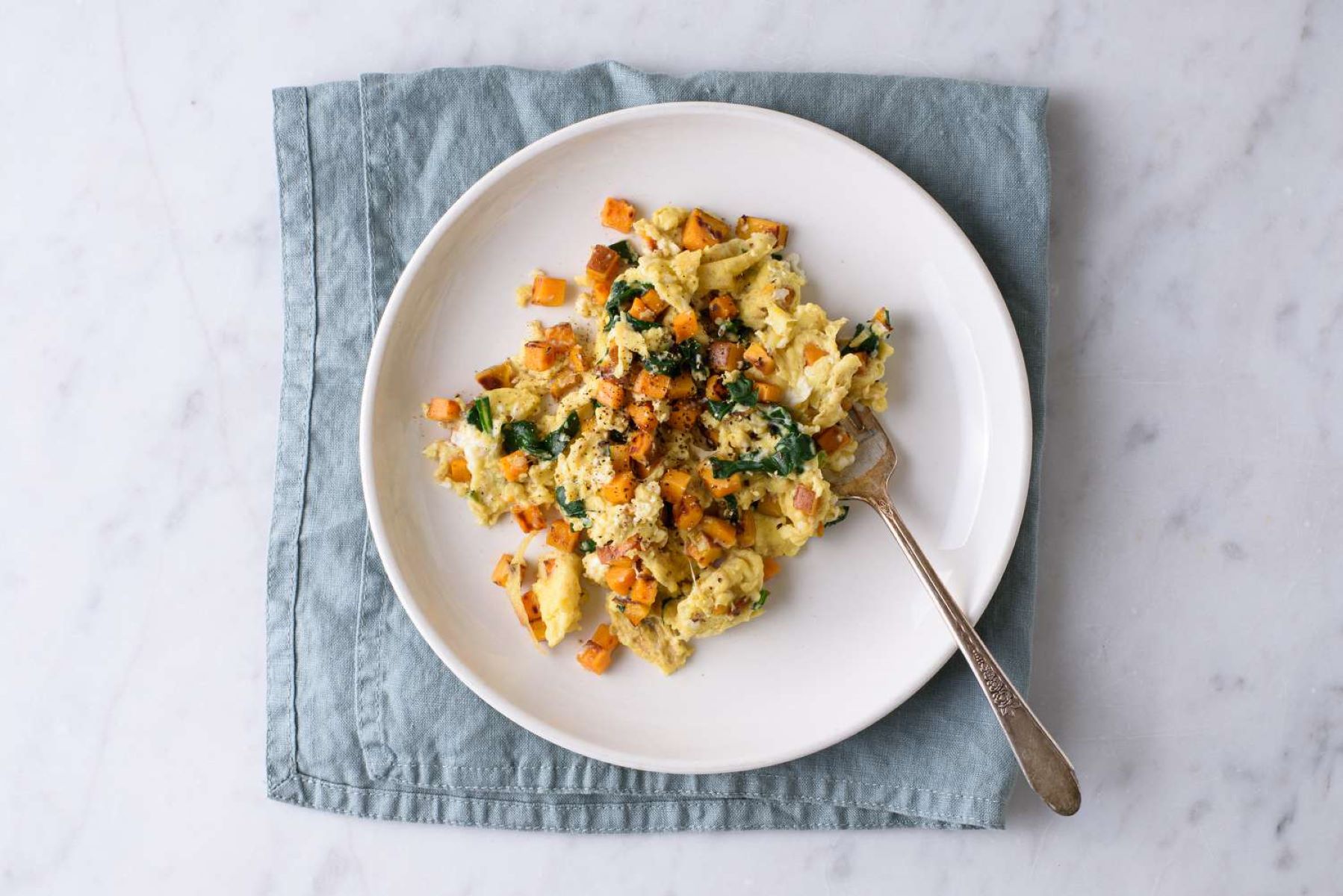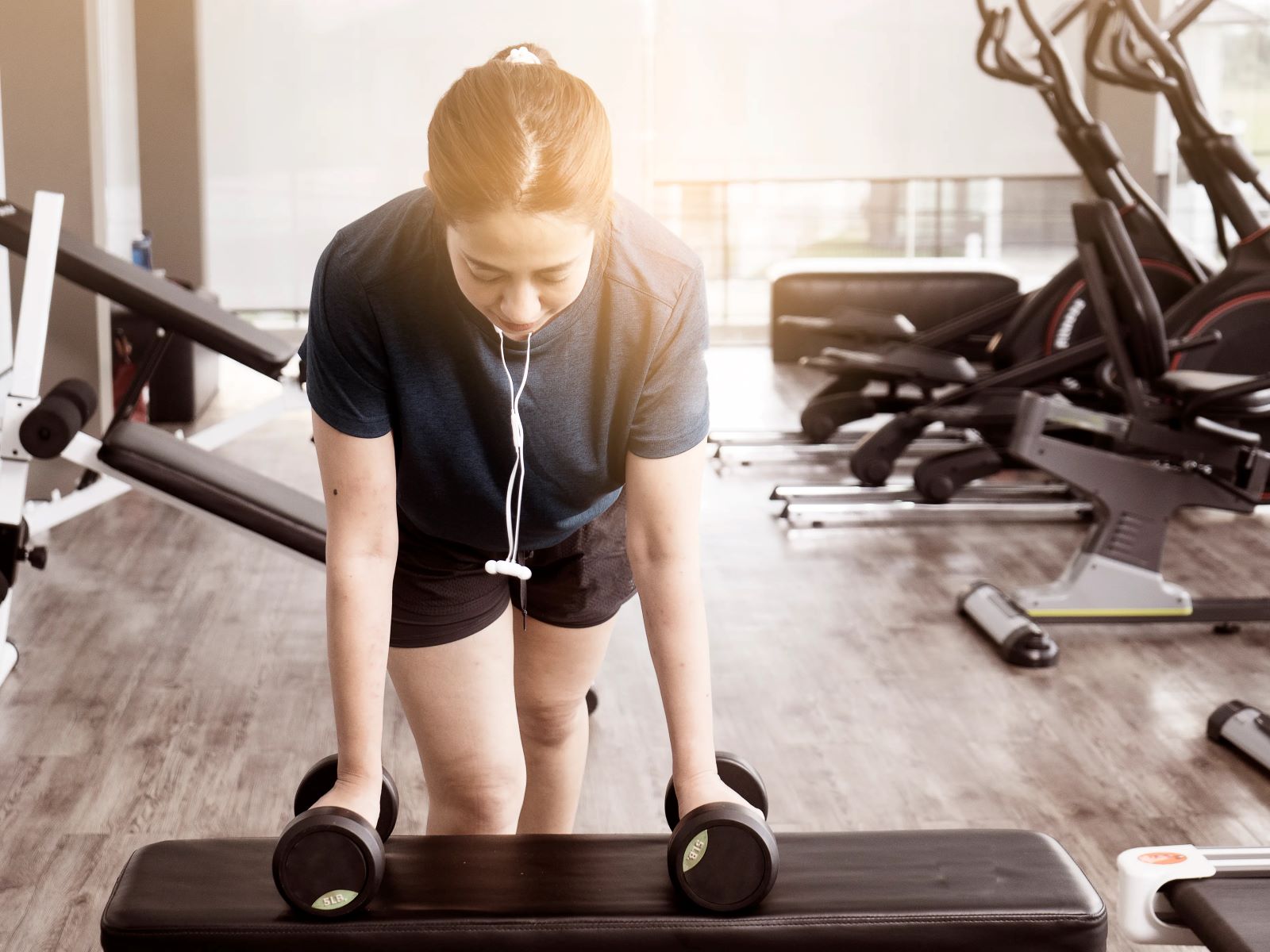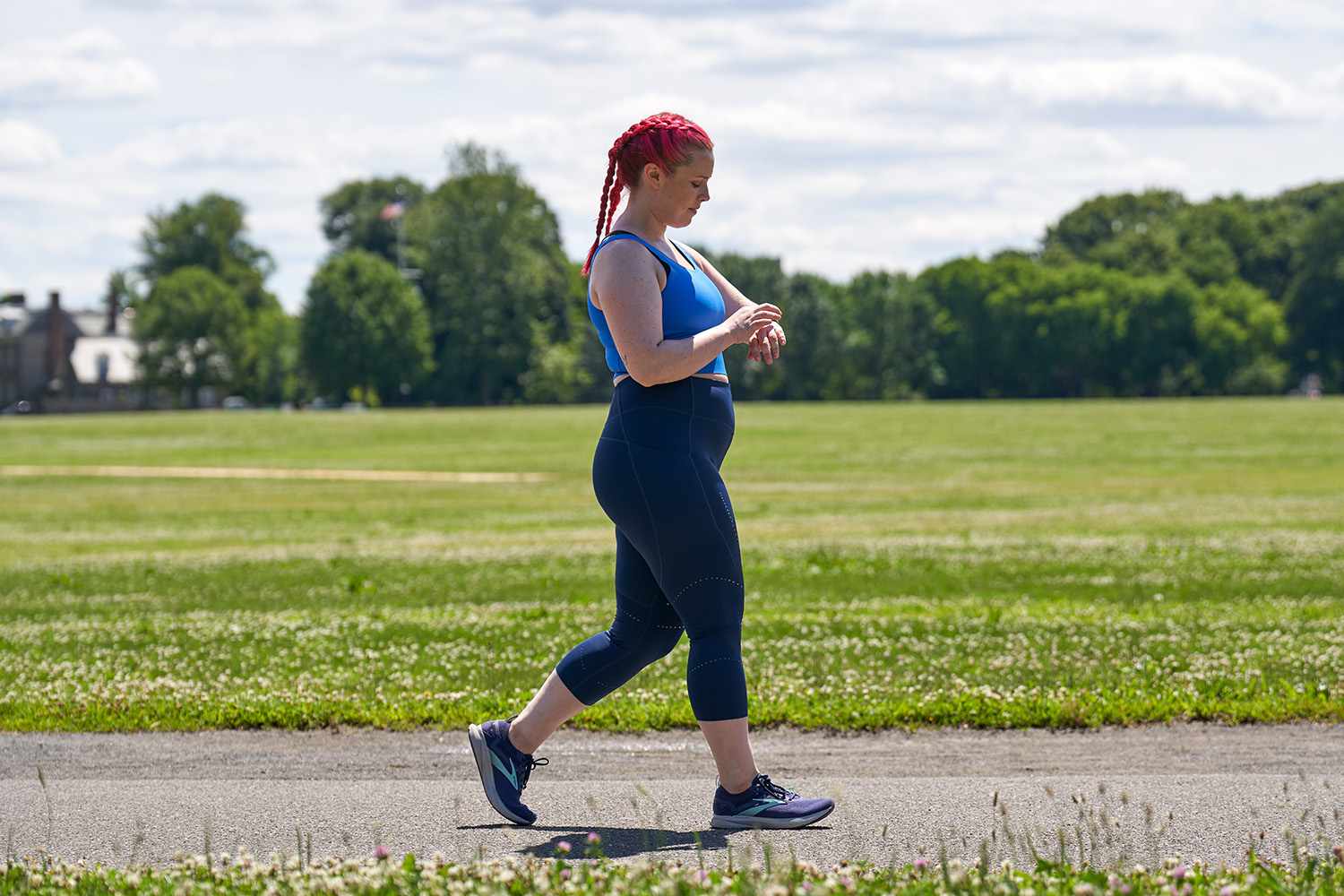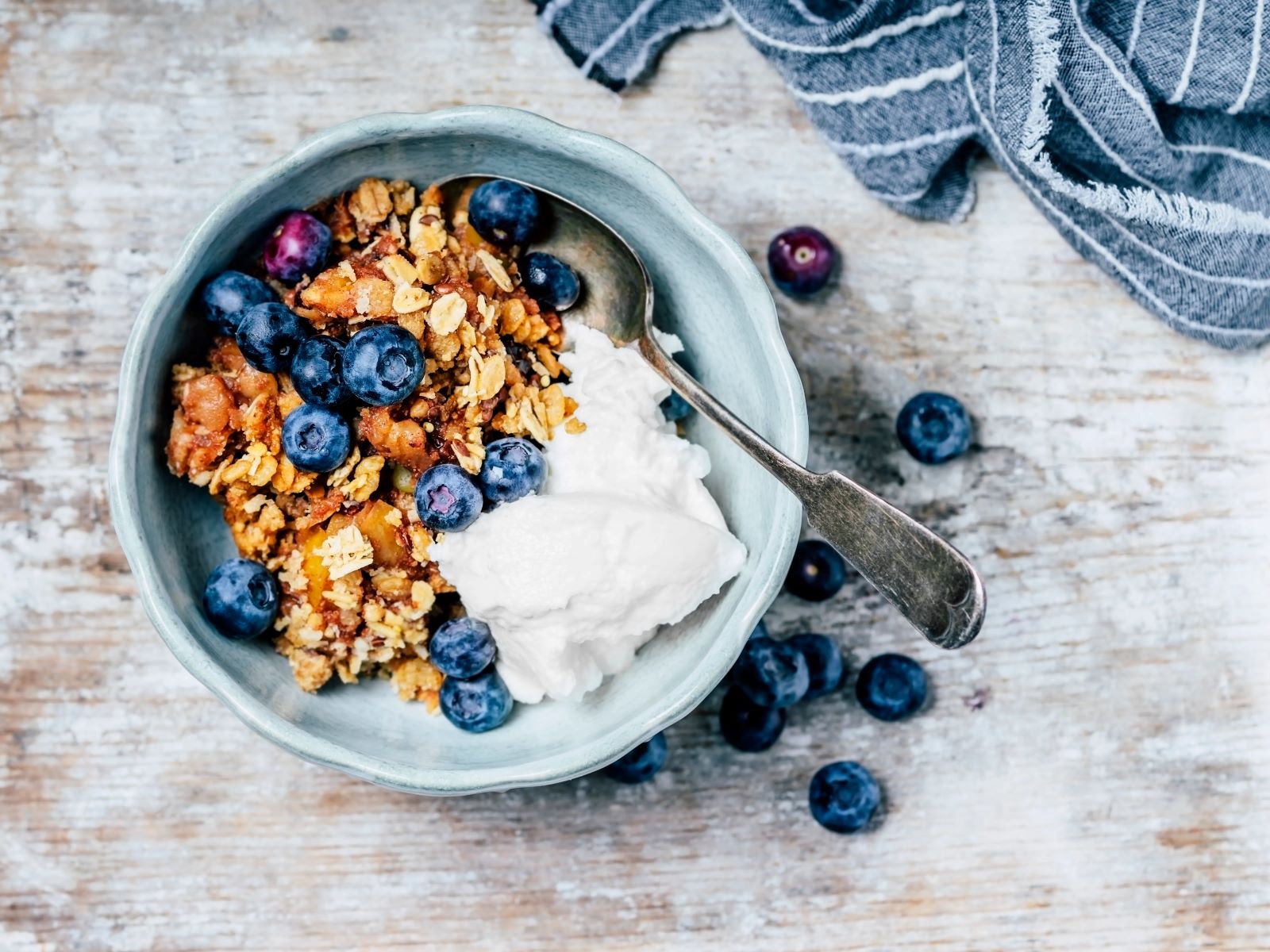Home>Misc>Featured>What To Eat After A Workout To Lose Weight
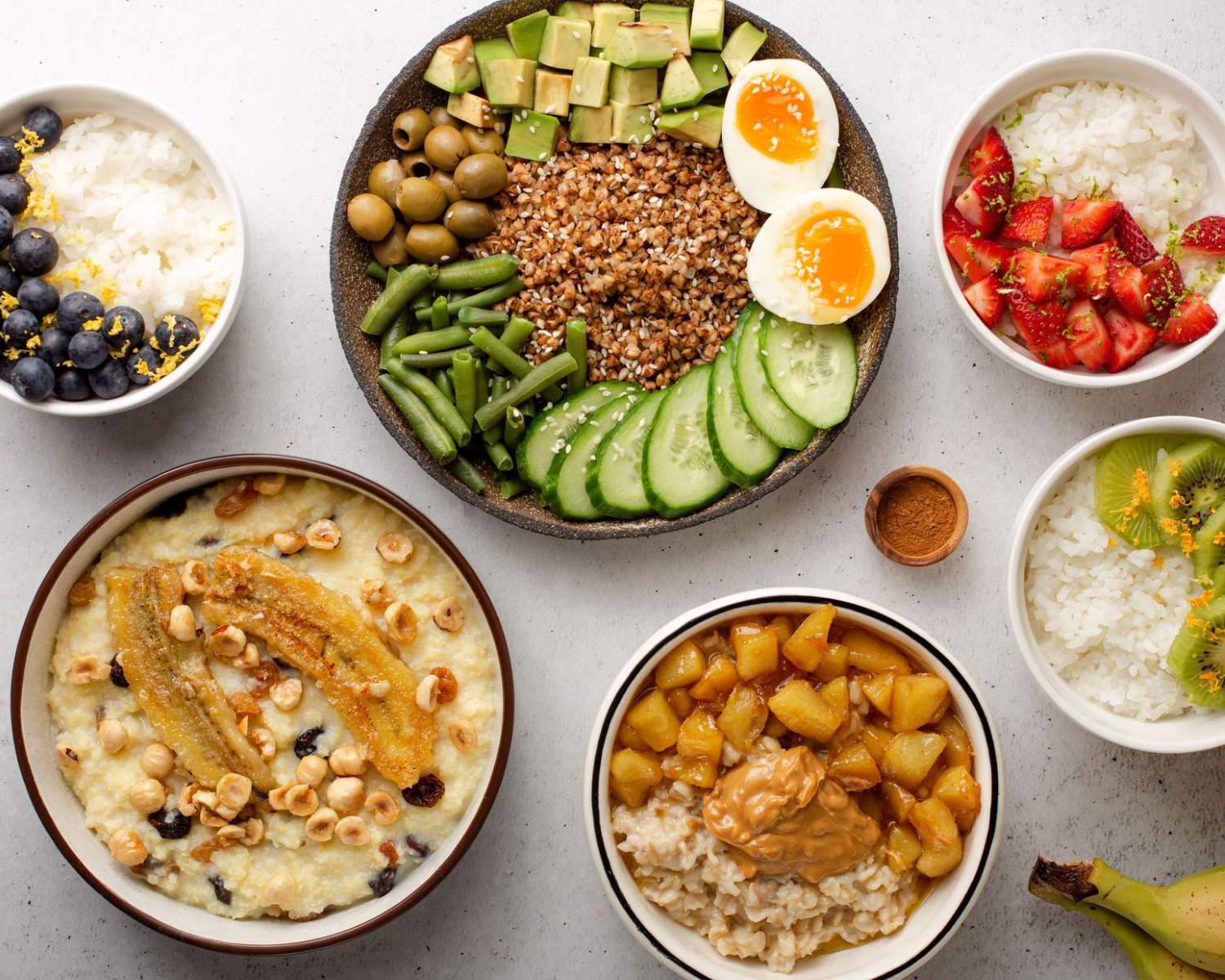

Featured
What To Eat After A Workout To Lose Weight
Modified: January 2, 2024
Discover the best post-workout meals for weight loss with our featured guide. Find out what to eat after exercising to optimize your weight loss journey.
Introduction
Engaging in regular exercise is an important part of a healthy lifestyle, but did you know that what you eat after a workout can greatly impact your weight loss goals? It’s true! Post-workout nutrition plays a crucial role in fueling your body, aiding in muscle recovery, and optimizing fat burning.
When you exercise, your body burns calories and depletes its energy stores. In order to replenish those stores and promote muscle repair and growth, it’s essential to provide your body with the right nutrients. By choosing the right foods, you can maximize the benefits of your workout and support your weight loss efforts.
In this article, we will explore the key nutrients that are essential for weight loss after a workout. We’ll discuss the importance of lean proteins, complex carbohydrates, healthy fats, fiber-rich foods, and proper hydration. Additionally, we’ll provide some sample post-workout meals that are not only delicious but also help you shed those unwanted pounds.
Whether your exercise routine involves intense cardio sessions, strength training, or a combination of both, the following information will guide you in making smart and informed choices when it comes to post-workout nutrition. So, let’s dive in and discover what to eat after a workout to lose weight!
The Importance of Post-Workout Nutrition
After a workout, your body undergoes various physiological changes that make it the perfect time to refuel with the right nutrients. Here are a few reasons why post-workout nutrition is so important for weight loss:
- Muscle Recovery: During exercise, your muscles experience micro-tears. Consuming the right nutrients after a workout helps repair and rebuild these muscles, supporting their growth and recovery.
- Optimal Fat Burning: When you exercise, your body uses stored glycogen as its primary fuel source. By replenishing glycogen levels with carbohydrates after a workout, you ensure that your body can continue to burn fat efficiently even after you’ve finished exercising.
- Prevent Muscle Breakdown: Intense exercise can lead to muscle breakdown. Protein consumption after a workout provides the necessary amino acids that help repair and prevent the breakdown of muscle tissue.
- Energy Restoration: After a workout, your body’s energy stores, such as glycogen, are depleted. Consuming carbohydrates post-workout helps replenish these stores, allowing you to regain energy for your next workout.
- Reduced Hunger: Intense exercise can increase your appetite. Including the right nutrients in your post-workout meal helps satisfy hunger and prevent overeating later in the day, which can aid in weight loss.
By prioritizing post-workout nutrition, you can optimize your workouts, promote muscle growth, enhance fat burning, and support your overall weight loss goals. Therefore, it’s essential to make thoughtful choices about the foods you consume after exercise.
Key Nutrients for Weight Loss After a Workout
When it comes to post-workout nutrition for weight loss, there are specific nutrients that play a vital role in supporting your goals. Let’s explore these key nutrients:
1. Lean Proteins
Protein is essential for repairing and building muscles, and it also aids in weight loss by boosting metabolism and promoting satiety. Opt for lean protein sources such as chicken breast, turkey, fish, tofu, or Greek yogurt. Aim for 20-30 grams of protein in your post-workout meal.
2. Complex Carbohydrates
Carbohydrates are crucial for replenishing glycogen stores and providing energy. Choose complex carbohydrates like whole grains, sweet potatoes, quinoa, or brown rice. These are digested slowly, providing a steady release of glucose into the bloodstream.
3. Healthy Fats
Incorporating healthy fats into your post-workout meal can help you feel satisfied and improve nutrient absorption. Include sources like avocados, nuts, seeds, or olive oil. While fat intake should be moderate, it’s an important component of a balanced meal.
4. Fiber-rich Foods
Fiber-rich foods are excellent for weight loss as they promote fullness and aid in digestion. Include fruits, vegetables, legumes, and whole grains in your post-workout meal to increase fiber intake and support a healthy gut.
5. Hydration
Hydration is essential pre, during, and post-workout. Drinking enough water assists in muscle recovery, regulates body temperature, and supports metabolic functions. Stay hydrated by drinking water or consuming beverages like coconut water or electrolyte-rich sports drinks.
By incorporating these key nutrients into your post-workout meal, you are providing your body with the necessary fuel to support weight loss, muscle growth, and overall recovery.
Lean Proteins
When it comes to post-workout nutrition for weight loss, lean proteins are a crucial component. Protein plays a vital role in muscle repair and growth, boosts metabolism, and promotes satiety. Including lean protein sources in your post-workout meal can help you achieve your weight loss goals effectively.
Some excellent sources of lean proteins include:
- Chicken Breast: Skinless, boneless chicken breast is a lean and versatile protein option. It is low in calories and rich in essential amino acids that aid in muscle recovery and growth.
- Turkey: Turkey is another lean protein source that can be enjoyed in different forms, such as turkey breast or ground turkey. It contains essential nutrients like B vitamins, selenium, and zinc.
- Fish: Varieties like salmon, tuna, and trout are high in omega-3 fatty acids, which offer numerous health benefits. They not only provide lean protein but also facilitate muscle repair and reduce inflammation.
- Tofu: For vegetarians or vegans, tofu is an excellent plant-based lean protein option. It is made from soybeans and contains all the essential amino acids required for muscle repair and growth.
- Greek Yogurt: Greek yogurt is a protein-packed option that also provides gut-friendly probiotics. It can be enjoyed on its own, mixed with fruits, or used as a base for smoothies.
When planning your post-workout meal, aim for 20-30 grams of protein to optimize muscle recovery and support weight loss. Pair your lean protein source with other nutrient-dense foods to create a well-rounded and balanced meal.
It’s worth noting that while lean proteins are essential, it’s important to avoid high-fat cooking methods or heavy sauces that can add unnecessary calories. Opt for grilling, baking, or steaming your protein sources for a healthier preparation.
Incorporating lean proteins into your post-workout nutrition will not only aid in muscle recovery but also keep you feeling satisfied and help you reach your weight loss goals more effectively.
Complex Carbohydrates
When it comes to fueling your body after a workout, complex carbohydrates are an essential component of a balanced post-workout meal. These carbohydrates provide your body with the necessary energy to replenish glycogen stores and support optimal performance for your next workout session.
Here are some examples of complex carbohydrates that you can include in your post-workout meal:
- Whole Grains: Foods like oats, brown rice, quinoa, and whole wheat bread are rich in fiber, vitamins, and minerals. They digest slowly, providing a steady release of glucose into the bloodstream and sustaining energy levels.
- Sweet Potatoes: Sweet potatoes are a nutrient-dense carbohydrate source that offers a range of vitamins and minerals. They are also high in fiber and provide a slow and sustained release of energy.
- Legumes: Lentils, chickpeas, black beans, and other legumes are not only a great source of complex carbohydrates but are also packed with protein and fiber. They can help stabilize blood sugar levels and promote feelings of fullness.
- Vegetables: Many vegetables, such as broccoli, spinach, and Brussels sprouts, contain complex carbohydrates along with a host of other beneficial nutrients. They are low in calories and high in fiber, making them an excellent choice for weight loss.
Incorporating these complex carbohydrates into your post-workout meal ensures that your body replenishes glycogen stores and has the necessary energy for optimal recovery. These foods also promote satiety, which can help prevent overeating later in the day.
When planning your meal, aim to include a serving of complex carbohydrates alongside your lean protein source and other nutrient-rich foods. This combination will ensure a well-balanced and satisfying post-workout meal.
Remember, portion control is key when it comes to carbohydrates. It’s important to be mindful of your overall calorie intake and adjust portion sizes based on your individual needs and goals.
By including complex carbohydrates in your post-workout nutrition, you provide your body with the necessary energy to recover and fuel your future workouts, ultimately supporting your weight loss journey.
Healthy Fats
Contrary to popular belief, healthy fats are an important component of a balanced post-workout meal, especially when it comes to weight loss. Including the right types of fats in your diet after exercising can help keep you feeling satisfied, promote nutrient absorption, and support overall health.
Here are some examples of healthy fats that you can incorporate into your post-workout meal:
- Avocado: Avocados are rich in monounsaturated fats, which have been associated with various health benefits. They add creaminess and a delicious flavor to your meals while providing essential nutrients like fiber and potassium.
- Nuts and Seeds: Almonds, walnuts, chia seeds, and flaxseeds are all excellent sources of healthy fats. They also contain omega-3 fatty acids, which support heart health and have anti-inflammatory properties.
- Olive Oil: Olive oil is a staple of the Mediterranean diet and is rich in monounsaturated fats. It can be used as a dressing for salads or as a cooking oil for sautéing vegetables or lean proteins.
- Nut Butter: Whether it’s peanut butter, almond butter, or cashew butter, nut butters are a tasty way to incorporate healthy fats into your post-workout meal. Just be mindful of portion sizes, as they are calorie-dense.
While fats are important for weight loss, moderation is key due to their high calorie content. It is recommended to include a small serving of healthy fats, approximately a tablespoon or a handful of nuts, in your post-workout meal.
Healthy fats not only provide satiety but also aid in the absorption of fat-soluble vitamins. Additionally, they can help reduce inflammation in the body and support brain health.
When preparing your post-workout meal, consider incorporating a source of healthy fats alongside your lean protein and complex carbohydrates. This will help create a balanced and satisfying meal that supports weight loss and overall well-being.
Fiber-rich Foods
Including fiber-rich foods in your post-workout meal is essential for weight loss and overall health. Fiber plays a crucial role in digestion, satiety, and regulating blood sugar levels. By incorporating fiber-rich foods into your diet after exercising, you can support your weight loss goals and maintain a healthy gut.
Here are some examples of fiber-rich foods that you can include in your post-workout meal:
- Fruits: Fruits such as berries, apples, pears, and oranges are excellent sources of fiber. They are also packed with vitamins, minerals, and antioxidants that have numerous health benefits.
- Vegetables: Incorporate a variety of vegetables into your post-workout meal, such as broccoli, spinach, kale, carrots, and bell peppers. These vegetables provide fiber, vitamins, and minerals while being low in calories.
- Legumes: Beans, lentils, and chickpeas are not only a great source of complex carbohydrates but also packed with fiber. They promote satiety and help regulate blood sugar levels, making them an excellent choice for weight loss.
- Whole Grains: Whole grains like quinoa, brown rice, and whole wheat bread are rich in fiber. They provide a steady release of energy and keep you feeling full and satisfied.
- Nuts and Seeds: Almonds, chia seeds, flaxseeds, and other nuts and seeds are a great source of fiber and healthy fats. They can be sprinkled on top of yogurt, added to smoothies, or enjoyed as a snack.
Incorporating fiber-rich foods in your post-workout meal not only promotes digestion but also helps control appetite and reduce the risk of chronic diseases.
When planning your meal, make sure to include a serving of fruits, vegetables, or legumes to increase your fiber intake. This will not only keep you feeling fuller for longer but also support a healthy gut microbiome.
Remember to drink plenty of water when consuming fiber-rich foods to support proper digestion and prevent any discomfort.
By including fiber-rich foods in your post-workout nutrition, you can enhance your weight loss efforts while promoting overall health and well-being.
Hydration
Proper hydration is often overlooked when discussing post-workout nutrition, but it is just as important as the food you consume. Staying hydrated after exercise is crucial for supporting recovery, optimal performance, and weight loss.
Here are a few reasons why hydration is vital after a workout:
- Muscle Recovery: Adequate hydration helps transport nutrients and oxygen to your muscles, aiding in their recovery and repair after exercise.
- Regulating Body Temperature: Sweating during exercise leads to fluid loss, and replenishing those fluids is essential to prevent overheating and maintain optimal body temperature.
- Supporting Metabolism: Staying hydrated supports a healthy metabolism, which is crucial for weight loss. It helps your body efficiently burn calories and maintain energy levels.
- Joint Lubrication: Hydration is vital for joint health. It helps lubricate your joints and cushions them, reducing the risk of injury during exercise.
- Electrolyte Balance: When you sweat, you lose not only water but also essential electrolytes like sodium, potassium, and magnesium. Replenishing these electrolytes is important to maintain a proper balance and support proper muscle function.
So, how much water should you drink after a workout? While individual needs may vary, a general guideline is to consume 16-20 ounces (473-590 ml) of water within two hours of finishing your workout.
If you engaged in intense or prolonged exercise or if you sweat heavily, you may need to drink more to make up for the fluid loss. Monitor the color of your urine as a quick indicator of hydration – it should be pale yellow or nearly clear.
While water is the best choice for hydration, you can also opt for other beverages such as coconut water or electrolyte-rich sports drinks, especially if you’ve been sweating heavily.
Remember to hydrate before, during, and after your workout to maintain optimal performance, support recovery, and aid in weight loss.
By prioritizing hydration as part of your post-workout routine, you ensure that your body remains properly fueled and can function at its best.
Timing of Post-Workout Meals
The timing of your post-workout meal is crucial for maximizing the benefits of exercise and supporting weight loss. Consuming the right nutrients within the optimal timeframe can aid in muscle recovery, replenish energy stores, and promote fat burning.
Generally, it is recommended to consume a post-workout meal or snack within 30 minutes to 2 hours after your workout. This window is known as the “anabolic window” or “glycogen replenishment window” when your muscles are most receptive to absorbing nutrients and rebuilding.
If your goal is weight loss, it’s important to strike a balance between timing and portion control. While it’s beneficial to refuel within the post-workout window, it’s equally important to listen to your body’s hunger cues and not overeat.
Here are a few guidelines to consider when timing your post-workout meal:
- Immediate Post-Workout: If you have access to food right after your workout, consuming a balanced meal or snack within 30 minutes is ideal. This can include a combination of lean proteins, complex carbohydrates, and healthy fats.
- Within 1-2 Hours: If you’re unable to eat immediately after your workout, aim to consume a post-workout meal within 1-2 hours. This meal should still include the essential nutrients mentioned earlier to support recovery and weight loss.
- Protein Shake Option: For those who prefer a quick and convenient option, a protein shake can be consumed immediately or shortly after your workout. Choose a high-quality protein powder and mix it with water or a milk alternative.
Remember, the key is to listen to your body’s cues. If you’re not hungry immediately after a workout, that’s okay. Just make sure to refuel within the recommended time frame mentioned above.
Lastly, it’s important to note that post-workout nutrition is just one part of a balanced diet. It’s essential to focus on your overall dietary pattern, including pre and post-workout meals, to support your weight loss and fitness goals.
By being mindful of the timing of your post-workout meals and ensuring they contain the right nutrients, you can optimize the benefits of your exercise routine and enhance your weight loss journey.
Sample Post-Workout Meals for Weight Loss
Planning post-workout meals that are both nutritious and delicious can help support your weight loss goals while providing the necessary nutrients for muscle recovery. Here are some simple and satisfying sample post-workout meals:
Meal Option 1: Grilled Chicken Salad
- 4-6 ounces (113-170 grams) of grilled chicken breast
- A generous portion of mixed greens
- A variety of colorful vegetables (e.g., tomatoes, cucumbers, bell peppers)
- A sprinkle of feta cheese or a handful of nuts for healthy fats
- A light dressing made with olive oil and lemon juice
Meal Option 2: Protein Smoothie Bowl
- 1 scoop of protein powder (vanilla or chocolate flavor)
- A handful of spinach or kale
- 1/2 a frozen banana
- 1/4 cup (60 ml) of unsweetened almond milk
- Toppings: sliced fruits, chia seeds, and a drizzle of nut butter for healthy fats
Meal Option 3: Salmon with Quinoa and Roasted Vegetables
- 4-6 ounces (113-170 grams) of grilled or baked salmon
- 1/2 cup (90 grams) of cooked quinoa
- A mix of roasted vegetables (e.g., broccoli, Brussels sprouts, carrots)
- A drizzle of olive oil and a squeeze of lemon juice
Meal Option 4: Greek Yogurt Parfait
- 1 cup (240 grams) of Greek yogurt
- A handful of mixed berries
- A sprinkle of granola for added crunch
- A drizzle of honey for added sweetness (optional)
These sample meal options provide a good balance of lean proteins, complex carbohydrates, healthy fats, and fiber-rich foods, promoting muscle recovery, satiety, and weight loss.
Remember to adjust portion sizes according to your individual needs and goals. Additionally, feel free to customize these meals with your favorite ingredients and flavors.
Pair your post-workout meal with an adequate amount of water to stay hydrated and support digestion and nutrient absorption.
Experiment with different recipes and combinations to find what works best for you. Incorporating variety and enjoying your meals will help you stay motivated and stick to your weight loss journey.
Conclusion
When it comes to weight loss, post-workout nutrition plays a crucial role in optimizing results and supporting your overall health and fitness goals. By focusing on the right nutrients and timing your meals appropriately, you can maximize the benefits of your workouts and enhance your weight loss efforts.
Incorporating lean proteins, complex carbohydrates, healthy fats, fiber-rich foods, and proper hydration into your post-workout meals provides your body with the necessary fuel for recovery, muscle growth, and fat burning. These nutrients help repair and rebuild muscles, replenish energy stores, promote satiety, and support a healthy metabolism.
Remember to listen to your body’s hunger cues, adjust portion sizes as needed, and choose nutrient-dense foods to create satisfying and balanced post-workout meals. It’s also important to stay hydrated and replenish electrolytes lost during exercise to support optimal performance and recovery.
By making smart choices about what to eat after a workout, you can fuel your body efficiently, enhance your weight loss journey, and set yourself up for long-term success. Experiment with different recipes and meal combinations to find what works best for you and fits your preferences and dietary needs.
Lastly, it’s important to note that while post-workout nutrition is essential, it is just one piece of the puzzle. A comprehensive approach, including regular exercise, a balanced diet, adequate sleep, and stress management, is crucial for overall health and sustainable weight loss.
So, the next time you finish a workout, remember the importance of post-workout nutrition and nourish your body with the right nutrients to support your weight loss goals. Your hard work and dedication deserve the best fuel to help you achieve your desired results.

